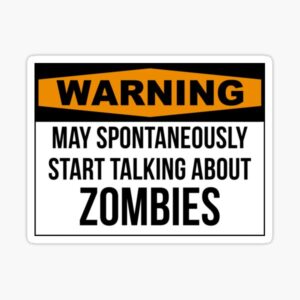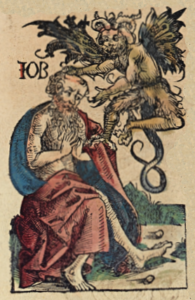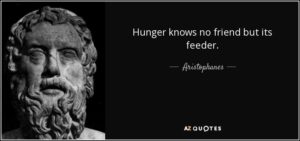I’m delighted to reprise a thought from Joe Nagy, one of my favorite writers.
Joe, a former literature and writing professor, contributed this thought on zombies. Like me, I’m sure you’ll find it “strangely” interesting.
Enjoy.

At the start of this semester, I asked my literature students to attend one academic presentation by mid-term, and write a two-paragraph response, reflecting on what they learned. They had plenty of choices. Faculty and guest lecturers present several talks each week.
One of the most popular presentations was by two members of the philosophy department.
The title was “Zombies, Souls, and Fear of the Flesh.”
How cool is that?
The two presenters examined the popularity of zombie movies over the last half-century. Why do zombies fascinate us? They concluded that the difference between zombies and other movie monsters is that zombies are us – minus all that makes us human: emotions, reason, and free will. They represent our fear of what we might become. The theme pops up within our culture whenever we feel under threat.
One of my students expressed it very well:
“[Dr. Bailey] says that we are so obsessed with the idea of zombies because they aren’t monsters like werewolves or vampires; zombies are humans, they are us. The truth is there is something horrifying about facing ourselves.
“Human beings are different from animals because we have the ability to think, process, and make decisions, while zombies are just like any other animal, driven by hunger with all human individuality lost.
“You see, zombies are depicted as having no love, imagination, hope, etc., and humans fear deep down that this depiction could be true.”
Two things that she wrote struck me.
The first was: “The truth is there is something horrifying about facing ourselves.” How does a 19-year-old come to understand that?
She is right, of course. Whether we are 16 or 60, we do not want to admit that much of the time we are driven by hunger: hunger for acceptance, for status, for reward, for escape.
We have so many hungers that it would take a book to list them all. And we do not want to admit that we are subject to any of them.
The second thing that struck me was her conclusion that “deep down” we fear that we might lose all that makes us human: love, imagination, hope. We fear that in our drive to fill our bottomless needs, we are risking our soul.
There are thousands of ways to lose your soul, and we are eager to explore every one of them. Just look around and note the faces staring down at cell phones, lonely and cut off from the space they inhabit.
Look at our addiction to video games, to empty calories, to gambling, to alcohol and drugs, to shopping, to mindless TV and movies.
There are of course places in our lives that nurture love, imagination and hope.
- Our families strengthen our capacity for love.
- A purposeful career challenges us to develop our talents.
- Art awakens our consciousness.
- Public service calls forth our instincts for charity. Worship instills awe.
One of the lessons that our class learned earlier in the semester, from The Book of Job, is that evil walks the earth, and can touch our health, our material goods, even those we love.
But it cannot touch our soul – unless we let it.
Job was a hero of faith because he believed even when he had no reason to believe. And because he refused to curse God, or if you prefer, refused to curse life, evil was defeated.

Satan lost the bet.
We should be afraid of zombies. We should be afraid that they might rob us of our soul. But we need not doubt our capacity to defeat them.
Dag Hammarskjold said it best: “When, later, Satan appears and smilingly declares himself the winner, he can still be defeated by the manner in which we accept the consequences of our action.”
Faith, hope and love always abideth.
Just a Thought,
Joe

